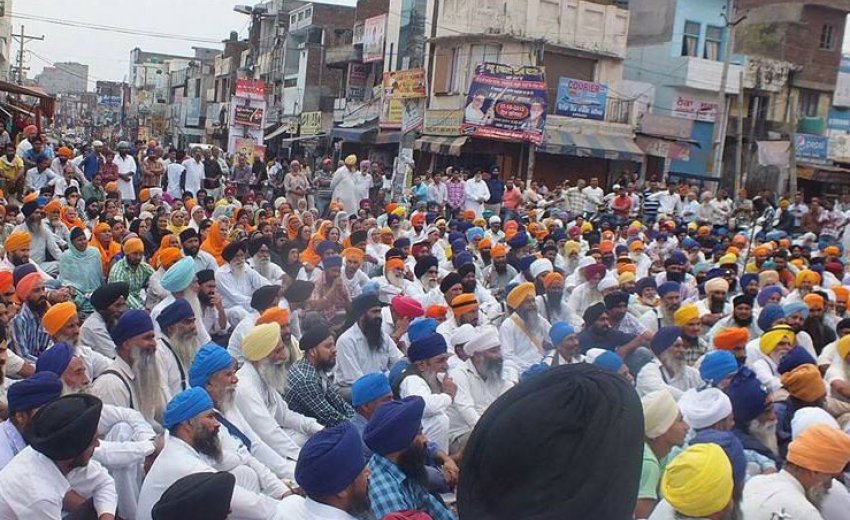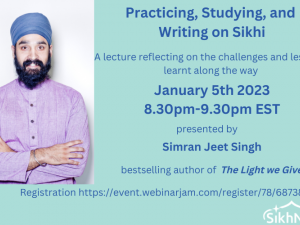The Current Situation in Punjab
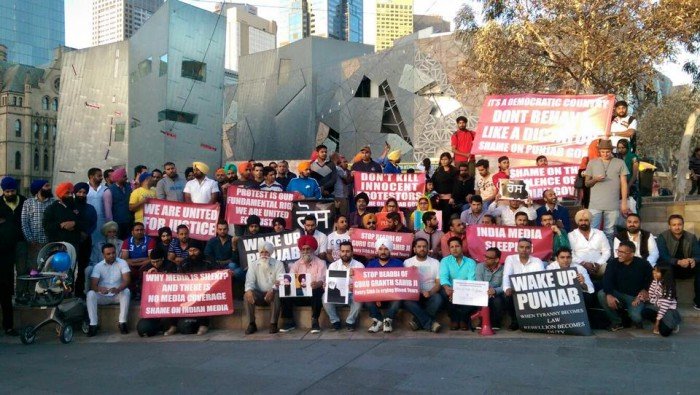
Current Situation in Punjab
This past week, tensions have escalated in Punjab. Due to media censorship, we have little information about what is actually happening on the ground, but here is what we are hearing and seeing so far. A religious faction publicly desecrated the Sikh scripture. Sikhs responded by organizing peaceful protests. These protests were marred when police opened fire on the protestors. Chaos ensued, and after the dust settled, at least two were dead and more than 150 were injured. The government responded by calling in the Indian Army and ordering a media blackout.
While this story is painfully harrowing, for Sikhs across the world the events of this week feel eerily familiar. The government’s decision to rely on military force, along with its enactment of media censorship, reminds Sikhs of the dark days of 1984. During this period about thirty years ago, the government created these precise conditions as part of its setup for a military assault that claimed tens of thousands of lives at Darbar Sahib, the most significant place of gathering for the Sikh community.
The wounds from 1984 are still fresh in the Sikh psyche. The community has not yet healed from the trauma of being targeted in anti-Sikh violence, and the realities of oppression continue to shape how Sikhs around the globe understand themselves today.
I was born in the United States in the summer of 1984, during the height of the anti-Sikh violence in Punjab. I was just a baby while my Sikh brothers and sisters were being targeted in India because of their religious beliefs. Although I was not directly affected by the anti-Sikh violence, the experiences of my community remain an intrinsic part of who I am today. The wounds of 1984 still last with me and always will be.
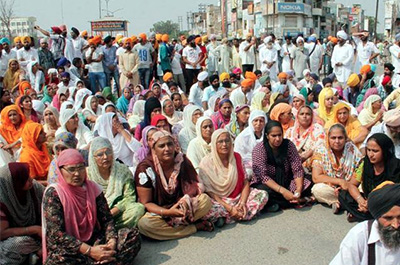 It is the unhealed trauma of anti-Sikh violence that compels Sikhs around the globe to feel dubious about the actions taken by the government this week. The government’s push to decrease media transparency and increase military presence is deeply troubling to the Sikh community precisely because it invokes the traumatic memories of 1984 and raises the question of whether such violence could again rear its ugly head.
It is the unhealed trauma of anti-Sikh violence that compels Sikhs around the globe to feel dubious about the actions taken by the government this week. The government’s push to decrease media transparency and increase military presence is deeply troubling to the Sikh community precisely because it invokes the traumatic memories of 1984 and raises the question of whether such violence could again rear its ugly head.
The lack of media representation is appalling. It makes it difficult to find the facts and trust the sources, but most importantly it keeps the world from seeing and discussing the injustice in Punjab. Credible journalists are not reporting about the situation in Punjab, partially out of fear and partially due to lack of access. As we have seen historically throughout the world, censorship of the media is a standard feature in attacks on minority communities. Infringing on the freedom of the press puts entire communities at risk.
Another striking feature in this story is the disproportionate response on the side of law enforcement with regard to peaceful protesting. The provoking group that desecrated the Sikh scripture was operating under the guise of freedom of expression. Yet, when Sikhs protested peacefully in response, also exercising their freedom of expression, we were shut down. Sikhs, again, were trying to support and promote democratic ideals. It was the police who came in with a disproportionately and unnecessarily violent response.
As religious intolerance increases in modern India, the conditions are ripe for communal violence against minority communities. The Sikhs in Punjab are at risk of being targeted in such violence, and we all have a role to play to help prevent it. We must stand up for civil liberties to ensure that they are not compromised. We have seen that when civil liberties are compromised – such as censoring the media and denying the freedom of expression – it creates an extremely tense and dangerous situation for minority communities.
There is much to be said about the current situation in Punjab, and there is so much more to the story that we still need to learn. What we do know, however, is that the current climate in Punjab is tenuous and that the Sikh community has ample reason to feel anxious about being targeted in communal violence. As people who enjoy the basic human rights and privileges, it is our responsibility to speak out and to help ensure that civil liberties are not compromised in Punjab. Until and unless we are able to secure these rights, the situation for minorities in India will continue to worsen and the stage will be set for hateful violence beyond our control.
Simran Jeet Singh, Senior Religon Fellow, The Sikh Coalition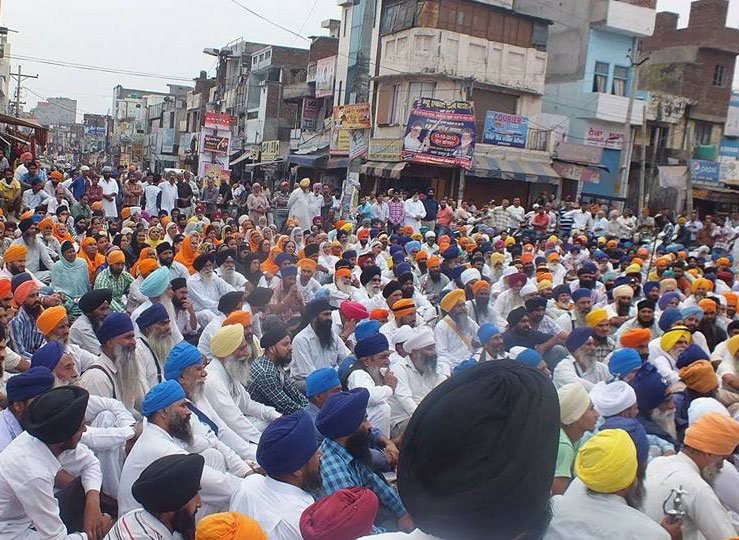
Editor's note: This is an opinion editorial which expresses the view of the author.

